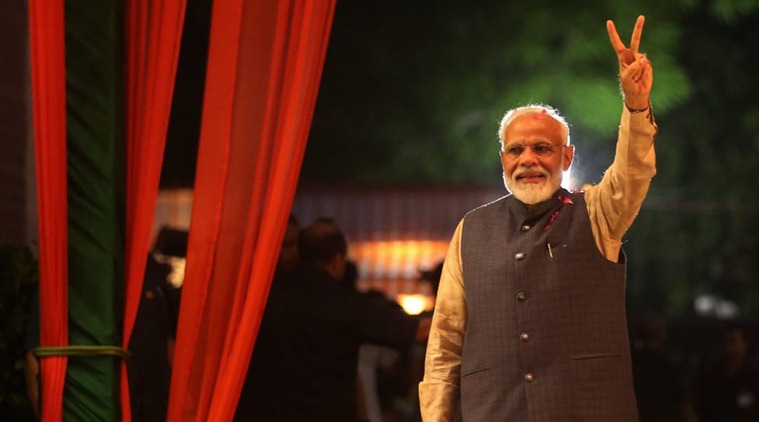
An overwhelming mandate is not always a blessing, a weakened Opposition makes governance more onerous and a successive second term deprives the rulers of any excuse. I am sure Prime Minister Narendra Modi is fully aware of the enormous expectations of the people and the huge burden placed on his Council of Ministers. Observing his first term, I am certain he will make every effort to rise to the challenge. There are two problems in the way. The first is the time-honoured way of doing things in India. The second is the competing claims of different sections of the people in which, invariably, the voices of the poorest, the weakest, the most deprived and the exploited are drowned. Our experience has been that at the end of the term (1) the time-honoured ways have only accumulated more time and honour and (2) the poorest, weakest, deprived and exploited remain poor, weak, deprived and exploited.
Time-tested & Failed
In his second term, Mr Modi must start by dismantling the time-honoured ways. Mr Arvind Panagariya, a friend of Mr Modi, and Mr Venkatesh Kumar (a professor at the Tata Institute of Social Sciences) have described those ways as follows:
‘A key element in his (Mr Modi’s) governance model was the appointment of a number of groups of secretaries with each group assigned the task of preparing presentations on projects, programmes and policies to be implemented the following year in key sectors of the economy… Once finalized, these presentations became the road maps of the following year for the major sectors.’
Then, the authors caution: ‘But when it comes to radical reforms, this approach has a downside. By nature, bureaucrats are cautious and lean heavily in favour of projects and programmes. Even when they propose policy changes, they are piecemeal and rarely go beyond tinkering.’
I agree with them entirely. However, I do not agree with their alternative method. Examined closely, it is no different. In the alternative model, the Mission Head will replace the minister, the Adviser will replace the secretary and young professionals will replace the joint secretary and her team!
Disruption is the Key
The results will be no different than the outcomes of Swachh Bharat and Ujjwala. In the case of Swachh Bharat, the bitter truth is no large state of India (except Gujarat) has been declared Open Defecation Free. What percentage of the toilets that were built are unused or unusable? In the case of Ujjwala, the proof of success or failure is the average number of replacement cylinders purchased by a beneficiary in a year: is it a disappointing 3 or an optimum 8? You know the answers as well as I do.
Radical reforms can be effected only through radical policies and disruption. In 1991-96, we made a bonfire of the Red Book and foreign trade was radically transformed. We threw away the Foreign Exchange Regulation Act and foreign exchange reserves soared. We scrapped industrial licensing and a new generation of entrepreneurs emerged. Mr Modi must try something like that in education, healthcare, and rural roads and transport. In school education he could borrow from the Congress manifesto and transfer the subject to the State List, give money to the states and set them free to innovate and compete. The people will demand results from their state government and, in course of time, get results.
The key idea — and the one that will be most disruptive — is decentralisation. The short-term results may be unsatisfactory but in the medium to long term, better governed states will deliver better outcomes than at present and that will make the people demand better governance at the state level. Areas that will immensely benefit from decentralisation are primary and secondary healthcare, drinking water, sanitation, renewable energy, distribution of electricity, etc.
Recall Dr Subramanian
The second formidable challenge is the ‘poorest of the poor’. Since they are the poorest, they are also at the bottom of the ladder in literacy, health indicators, housing, sanitation, consumption of food and water, and access to public goods and services. In a village, you will find them on the edges of the village. In poorer states, you will find whole villages populated by them. Let’s admit it, under successive governments, the development process has by-passed the poorest 20 per cent of India. Ministers and officials who visit villages, and programmes, stop — or are stopped — at the main street. The only way to reach the poorest is help them help themselves: start the fire of aspiration, let it rage in their hearts and homes, let them break out of the grip of poverty and lift themselves up. PM-KISAN will not help them because very few own a patch of land, most are agricultural labour or other labour, and a significant number lives in towns and cities. The disruptive policy change will be a basic income through direct transfer of money. Mr Modi can attribute the idea to Dr Arvind Subramanian and recall him to head a department to design and implement the scheme.
Not much will change if we trudge along at 6-7 per cent rate of annual growth. Nothing will change if we tweak current policies or tinker with administrative systems. More damage will be done by vesting officials with extraordinary powers or threatening people with prosecution and imprisonment. The single most effective instrument of transformative change is empowering the people and placing faith in their wisdom, industry and capacity.